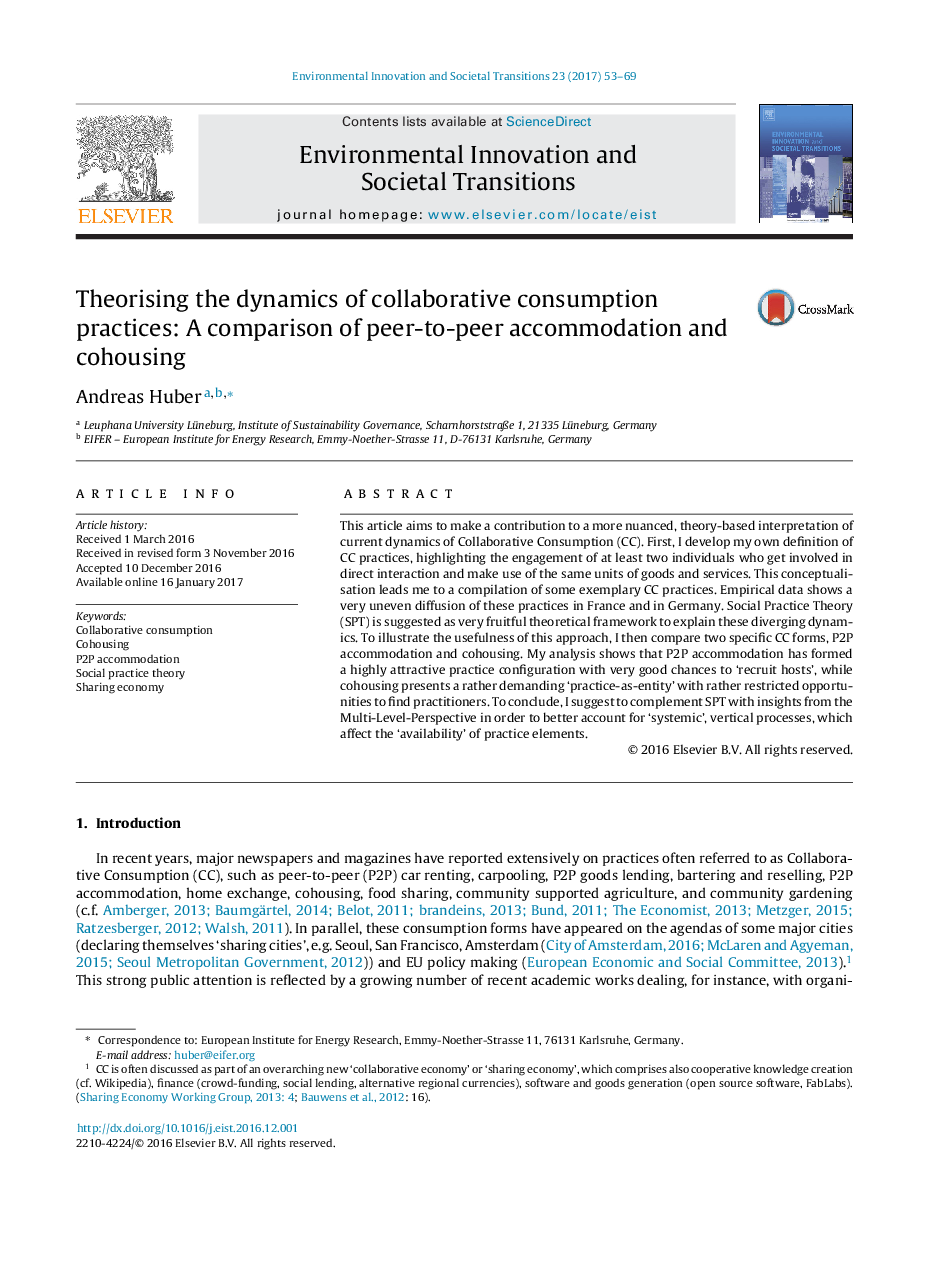| Article ID | Journal | Published Year | Pages | File Type |
|---|---|---|---|---|
| 6464246 | Environmental Innovation and Societal Transitions | 2017 | 17 Pages |
â¢The article contributes to a more theory-based interpretation of Collaborative Consumption dynamics.â¢An own definition of Collaborative Consumption is developed.â¢Social Practice Theory (SPT) is suggested as fruitful theoretical framework to explain differing dynamics.â¢The framework is applied to P2P accommodation and Cohousing.â¢Complementary insights from the Multi-Level-Perspective are proposed in the conclusion.
This article aims to make a contribution to a more nuanced, theory-based interpretation of current dynamics of Collaborative Consumption (CC). First, I develop my own definition of CC practices, highlighting the engagement of at least two individuals who get involved in direct interaction and make use of the same units of goods and services. This conceptualisation leads me to a compilation of some exemplary CC practices. Empirical data shows a very uneven diffusion of these practices in France and in Germany. Social Practice Theory (SPT) is suggested as very fruitful theoretical framework to explain these diverging dynamics. To illustrate the usefulness of this approach, I then compare two specific CC forms, P2P accommodation and cohousing. My analysis shows that P2P accommodation has formed a highly attractive practice configuration with very good chances to 'recruit hosts', while cohousing presents a rather demanding 'practice-as-entity' with rather restricted opportunities to find practitioners. To conclude, I suggest to complement SPT with insights from the Multi-Level-Perspective in order to better account for 'systemic', vertical processes, which affect the 'availability' of practice elements.
